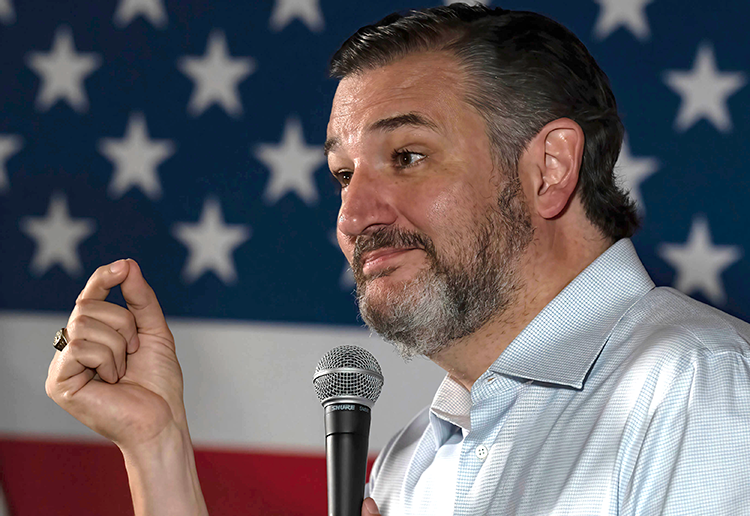Supreme Court sides with Ted Cruz in challenge to a campaign finance restriction

Sen. Ted Cruz of Texas brought the lawsuit. (Photo by Aimee Dilger via AP Images)
The U.S. Supreme Court on Monday struck down a campaign finance law that caps at $250,000 the amount of money campaigns can collect after an election to repay candidates’ personal campaign loans.
The court ruled 6-3 for Republican Sen. Ted Cruz of Texas in his challenge to the law, Section 304 of the Bipartisan Campaign Reform Act of 2002. Chief Justice John Roberts wrote the majority opinion.
Section 304 violates the First Amendment rights of candidates because it “burdens core political speech without proper justification,” Roberts wrote.
Cruz had loaned $260,000 to his 2018 reelection campaign. He contended that the law and regulations interpreting it would prevent him from recovering $10,000 of that amount in the weeks after an election.
Justice Elena Kagan wrote the dissent, joined by Justices Stephen Breyer and Sonia Sotomayor.
Kagan said the law was aimed at discouraging “crooked exchanges” in which candidates loaned money to their campaigns, hoping to collect money to repay the loan after the election from benefactors who believed they might receive benefits. Benefits sought might include favorable legislation, government contracts and prized appointments.
Roberts countered that individual contributions to candidates for federal office are capped at $2,900 per election, and “nontrivial contributions” must be publicly disclosed.
“The dissent’s dire predictions about the impact of today’s decision elide the fact that the contributions at issue remain subject to these requirements.” Roberts said.
The opinion is Federal Election Commission v. Ted Cruz for Senate.
Hat tip to SCOTUSblog.



